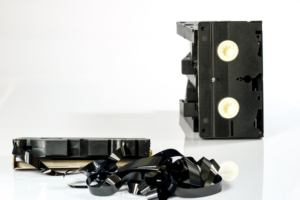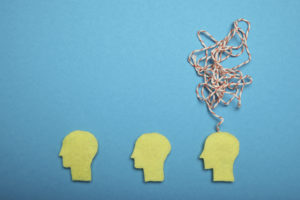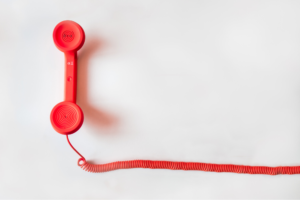
By David Clewett, Assistant Professor of Psychology at UCLA
In our upcoming production The Father, Alfred Molina plays André, an engineer who is slowly wondering if he’s losing control. It’s a play that questions and weighs the validity of our own reality. UCLA Psychology professor David Clewett writes about the unreliability of our own memories.
—
Memories are a precious commodity. They help us learn from our mistakes, enhance our sense of wellbeing, and, ultimately, lay the foundation for our sense of self. But for all of their benefits, they are not without their faults.
When we bring past experiences to mind, it can feel as if we are vividly re-experiencing those events in the moment. Remembering a beach vacation may conjure the sounds of birds, the sensation of sand between your toes, and the smiles of friends who accompanied you. Yet this rich sense of recollection belies the fact that memories aren’t exact records of past experiences. They are highly subjective and often unreliable. Unlike simply pressing the ‘play’ button on a VCR, retrieving specific memories is a reconstructive process in which we must reassemble the elements of experience – the people and things – that belong to a specific place and time. However, this fragile process is prone to errors both when the event is happening as well as when we attempt to retrieve that memory later on.
First, we cannot remember everything. Because our attention and mental resources are limited, our memories can only capture some details of an event (such as the friends you were at the beach with) but not others. This selective nature of memory is perhaps best illustrated by situations that are emotionally intense. Eyewitness testimony, for example, is often unreliable because when people are under a state of duress, they tend to focus on the immediate source of threat (a perpetrator’s weapon). This attentional narrowing, however, often comes at the expense of remembering information that was less pressing at the time (the perpetrator’s face). What’s worse is people’s confidence in their memory often doesn’t track accuracy. For instance, individuals may mis-remember what they were wearing on September 11th despite feeling extremely confident in their recollection.
Second, because we do not remember everything we encounter, we are forced to draw upon prior knowledge or the suggestions of others to fill memory gaps. Returning to the previous example, investigators can use misinformation or leading questions to make eyewitnesses believe they saw something that wasn’t there. Furthermore, as memories age, they tend to fade and lose most of their specific details (e.g., ‘that time I spent with my friend at my favorite coffeeshop’). With time, memories for specific events slowly blend together with similar experiences to become more generalized knowledge (‘what coffeeshops are like’). This again forces individuals to rely on fuzzy concepts or current attitudes/viewpoints to infer what’s missing in a specific memory, which can lead to erroneous recollections.
Third, memories are not laid in stone. With each recollection, new information can be incorporated into existing memories. This updating process can lead people to misattribute certain details to the wrong episode, or event. Like a game of telephone, these errors can also accrue over time, causing the original memories to become increasingly distorted every time they are brought to mind.
As beautifully captured in the book, The Seven Sins of Memory: How the Mind Forgets and Remembers, the most common memory “sins”, or errors, usually stem from forgetfulness or potential distortions that can emerge over time. But perhaps memory’s biggest sin in the play, The Father, is not a failure to effectively or accurately conjure the past. Rather, for all of memory’s faults, it is the absence of new memory – the inability to store new experiences – that may inflict the most damage on wellbeing.
The Father, starring Alfred Molina is on stage Feb 5 – Mar 1, 2020. Tickets start at $25! Get Tickets




